“If I can do it, so can you.” How often have you heard or read those words? And how often have you thought, “Yeah, right”?
But wait. When I make that statement, it's actually true. Hear me out.
Before I wrote my memoir, I had no experience writing anything. I never finished high school. And with all the surgeries I had to repair my face, I missed a lot of education along the way. The only thing I remember is receiving three stars on a paper I wrote in the third grade. That was a long time ago.
After years of my friends telling me I had a great story (I’m not the first or last to hear that one), I decided not to procrastinate any longer. I sat at my kitchen table with a cup of coffee, which, over the years, would be bottomless cups. Grabbing a pen and spiral notebook, I was ready to write, but I didn’t know how to begin.
It was just me against the paper. At first the paper knocked me down, but as I continued to show up and write, I got a few good jabs in because at least I climbed into the ring.
KEEP YOUR HAND MOVING
I knew I needed help—and over the years I got plenty of it. What stands out for me is Natalie Goldberg’s workshop in Taos. In her “Rules for Writing Practice,” she encourages writers to write continuously on paper for a designated time with no regard for grammar, punctuation, or spelling. Keep your hand moving and ignore your inner critic.
I started filling my red Dollar Store spiral notebooks with just my thoughts in the moment. After a few days I had filled one section with ideas that had no cohesion. But I felt the satisfaction of having something on paper.
After a few weeks, the notes became sentences, which turned into paragraphs that lacked order or structure. It was a mish-mash of my thought process. Then I decided to transfer everything to my computer, but to my horror, I accidentally deleted the files.
So I returned to my trusty pen and notebook. At least I wouldn’t lose all my work unless I had a house fire or my Rottweiler chewed it up. Fortunately neither of those happened.
As I progressed with my project, I found that writing by hand had an organic flow to it. I could cross things out, write in the margins, draw arrows from one line to another, which helped me restructure the paragraphs.
THE BOSS
Sometime later, I watched a TV interview with Bruce Springsteen. As he spoke, he showed his notebooks filled with scribbled lyrics in different colored pens—words crossed out and the margins packed with more than I had in my own work in progress.
Springsteen said that when he writes, he looks at it and thinks, “Well, this isn’t too good.” (I’m paraphrasing here.) But he just keeps rewriting the songs, and eventually they get better.
If this worked for the Boss, why not for me? I was a neophyte trying to teach myself. The word “rewrite” would be my constant companion.
I discovered that the harder I tried, the less progress I made. When I let myself not care about grammar, spelling, or even structure, I could write more. Then the work took on a life of its own. I wasn’t bogged down with perfecting my words or worrying about finishing.
That’s not to say that I never got frustrated or even thought about quitting. I did. More than once, I threw my notebook across the room and walked away for a few days. Strange as it may sound, that worked. It allowed me the time to breathe and think. I knew in my heart that if I stopped, I would always regret not seeing it through.
With the help of patient editors, I managed to turn my scribbles into a manuscript. But it all started with sitting at the kitchen table and writing those first words.
If you have a compelling life story or a novel that's been in your head for years, commit to turning into a reality. Believe me, if I can do it, so can you.
I'd love to hear about your writing process. What has and hasn't worked for you?
“The expert in anything was once a beginner.”—HELEN HAYES
But wait. When I make that statement, it's actually true. Hear me out.
Before I wrote my memoir, I had no experience writing anything. I never finished high school. And with all the surgeries I had to repair my face, I missed a lot of education along the way. The only thing I remember is receiving three stars on a paper I wrote in the third grade. That was a long time ago.
After years of my friends telling me I had a great story (I’m not the first or last to hear that one), I decided not to procrastinate any longer. I sat at my kitchen table with a cup of coffee, which, over the years, would be bottomless cups. Grabbing a pen and spiral notebook, I was ready to write, but I didn’t know how to begin.
It was just me against the paper. At first the paper knocked me down, but as I continued to show up and write, I got a few good jabs in because at least I climbed into the ring.
KEEP YOUR HAND MOVING
I knew I needed help—and over the years I got plenty of it. What stands out for me is Natalie Goldberg’s workshop in Taos. In her “Rules for Writing Practice,” she encourages writers to write continuously on paper for a designated time with no regard for grammar, punctuation, or spelling. Keep your hand moving and ignore your inner critic.
I started filling my red Dollar Store spiral notebooks with just my thoughts in the moment. After a few days I had filled one section with ideas that had no cohesion. But I felt the satisfaction of having something on paper.
After a few weeks, the notes became sentences, which turned into paragraphs that lacked order or structure. It was a mish-mash of my thought process. Then I decided to transfer everything to my computer, but to my horror, I accidentally deleted the files.
So I returned to my trusty pen and notebook. At least I wouldn’t lose all my work unless I had a house fire or my Rottweiler chewed it up. Fortunately neither of those happened.
As I progressed with my project, I found that writing by hand had an organic flow to it. I could cross things out, write in the margins, draw arrows from one line to another, which helped me restructure the paragraphs.
THE BOSS
Sometime later, I watched a TV interview with Bruce Springsteen. As he spoke, he showed his notebooks filled with scribbled lyrics in different colored pens—words crossed out and the margins packed with more than I had in my own work in progress.
Springsteen said that when he writes, he looks at it and thinks, “Well, this isn’t too good.” (I’m paraphrasing here.) But he just keeps rewriting the songs, and eventually they get better.
If this worked for the Boss, why not for me? I was a neophyte trying to teach myself. The word “rewrite” would be my constant companion.
I discovered that the harder I tried, the less progress I made. When I let myself not care about grammar, spelling, or even structure, I could write more. Then the work took on a life of its own. I wasn’t bogged down with perfecting my words or worrying about finishing.
That’s not to say that I never got frustrated or even thought about quitting. I did. More than once, I threw my notebook across the room and walked away for a few days. Strange as it may sound, that worked. It allowed me the time to breathe and think. I knew in my heart that if I stopped, I would always regret not seeing it through.
With the help of patient editors, I managed to turn my scribbles into a manuscript. But it all started with sitting at the kitchen table and writing those first words.
If you have a compelling life story or a novel that's been in your head for years, commit to turning into a reality. Believe me, if I can do it, so can you.
I'd love to hear about your writing process. What has and hasn't worked for you?
“The expert in anything was once a beginner.”—HELEN HAYES
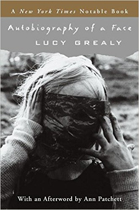
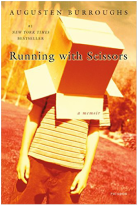
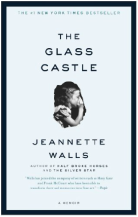
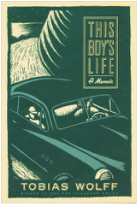
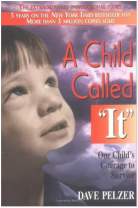
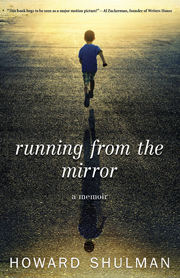
 RSS Feed
RSS Feed